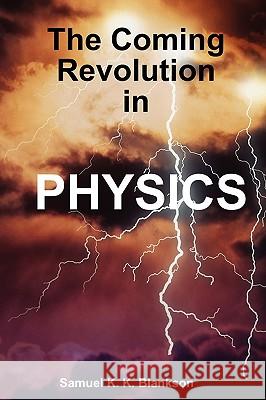THE Coming Revolution in Physics » książka
THE Coming Revolution in Physics
ISBN-13: 9781445228099 / Angielski / Miękka / 2009 / 112 str.
'The coming revolution in physics' is the authors latest monograph expanding his concepts and arguments about the misunderstanding and misuse of time in physics. Blankson argues that since most of us accept that the earth-year is a valid unit of time, we have to accept, also, that time is necessarily discrete, since the year is only one unit of time that has to be repeated for time to continue. Discrete time cannot march, so history is not the march of time but of events. Also discrete time cannot curve, therefore the concept of 'curved space-time' by which time travel is said to be a 'scientific possibility' is false. By discrete time, the Minkowski 4-D geometry cannot reflect physical reality; and since his equation s=ct has sunk deep into physics, the philosopher thinks physics is heading for another revolution in the very near future.
The coming revolution in physics is the authors latest monograph expanding his concepts and arguments about the misunderstanding and misuse of time in physics. Blankson argues that since most of us accept that the earth-year is a valid unit of time, we have to accept, also, that time is necessarily discrete, since the year is only one unit of time that has to be repeated for time to continue. Discrete time cannot march, so history is not the march of time but of events. Also discrete time cannot curve, therefore the concept of curved space-time by which time travel is said to be a scientific possibility is false. By discrete time, the Minkowski 4-D geometry cannot reflect physical reality; and since his equation s=ct has sunk deep into physics, the philosopher thinks physics is heading for another revolution in the very near future.











